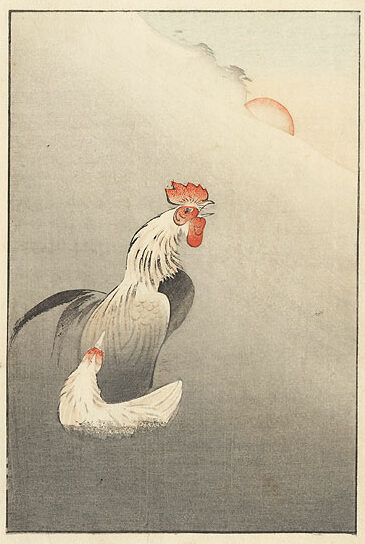Only two of the texts that Schubert set to music appear to refer to the crowing of roosters in the early morning. Hölty’s Die Nonne (D 208, D 212) is a rather over-the-top ghost story, which explains why a former nun haunts an obscure chapel every night until cock-crow sends her back to the grave. The crowing cock in Müller´s Frühlingstraum (in Winterreise D 911/11) serves another purpose, though. It is a natural alarm that rouses the sleeper from sleep, or rather, which returns a dreamer from fantasy and distortion to cruel reality. What had appeared to be springlike and hopeful in the dreamworld (the leaves of trees in May and the merry chirping of the dawn chorus) turns into a bleak winter morning (frozen ice forming ‘leaves’ on the window and the raucous crowing of the rooster). In both texts the call marks a crucial transition.
☙
Descendant of:
SOUND TIMETexts with this theme:
- Die Nonne, D 208, D 212 (Ludwig Christoph Heinrich Hölty and Johann Heinrich Voß)
- Frühlingstraum, D 911/11 (Wilhelm Müller)


